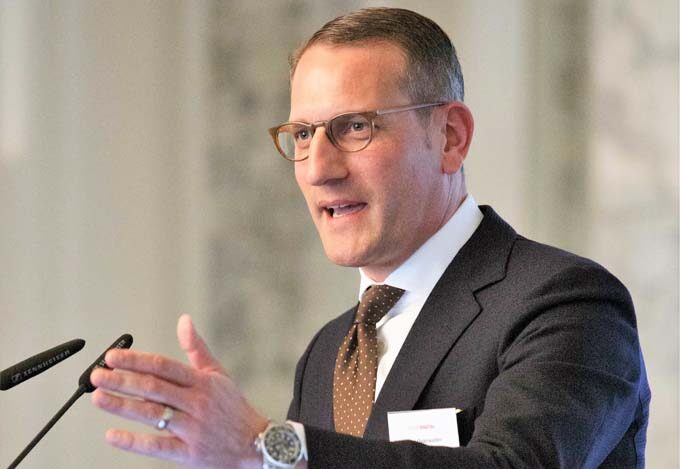Digital Economic Forum in Zurich with real innovation
Exciting speakers - but also the presentation of a cantonal digitization project: The third Digital Economic Forum on May 9 and 10 in Zurich managed to pull out all the stops.

A youngster, a communications punk, a hacker and several other speakers from business, politics and society: they were responsible for an exciting mix of topics at this year's Digital Economic Forum. The massive impact of unstoppable digitization on society and cyber security were the focus of the conference, which was sold out with around 250 guests. Philipp Riederle - just the "youngster" and digital native - presented the demands of Millennials on jobs and life. Author, blogger and strategy consultant Sascha Lobo said, among other things, that it is not technology that is changing our world, but the way we deal with it. And all illusions of a secure cyber world were destroyed by the "gentleman hacker" FIL from Team Red: He made it clear that private individuals, organizations and companies who become the target of a hacker attack have no chance to defend themselves. What is important, he said, is personal behavior and awareness that this insecurity is permanent. As the DDPS officer responsible for risk analysis in all matters of information and cyber security, Ferdinand Kobelt knew about the massive relevance, the enormous opportunities, but also the unprecedented risks of the Internet of Things, which can no longer be stopped. Business philosopher Anders Indset concluded with a forceful call for yesterday's philosophy to be paired with tomorrow's science and technology. In various business tracks, the Digital Economic Forum also presented successful visions, concepts and ideas for overcoming digital challenges.
However, the announcement of the realization of the digital canton of Glarus caused a sensation at the Digital Economic Forum. Within just 12 weeks, Glarner Kantonalbank, together with the cantonal technical operations and HIAG Data AG, created the basis for the "fastest and cheapest data highway in the Alps" has been created, according to the statement. This project is intended to form a new basis for doing business in a peripheral region so that the "digital divide" can be overcome. "The interaction of the various stakeholders to create good framework conditions for investments is obviously easier in rural areas than in urban anonymity," Landolt explained at a media roundtable and panel discussion at DEF. Politicians, he said, do not need to regulate either regionally or nationally, but rather allow such projects and enjoy them. For Glarus, he said, this digital infrastructure is of eminent importance, also to break commuter flows in both directions and to realize an optimal basis for doing business. Hanspeter Tinner, COO of HIAG Data AG, made it clear that the company, as a technical enabler, is fundamentally interested in digitally opening up industrial sectors and offering companies the infrastructure they need for the new world of work. Accordingly, Tinner explained that there was great interest in working with Glarner Kantonalbank as the initiator to realize an innovative, fast and, above all, secure network for the entire region. "With 9.6 terrabits, we are providing the largest bandwidth for an independent, fast and affordable fiber optic network to which business-critical applications and data can be connected. Digitalization and business are now being brought together, Ralf Luchsinger, CIO of Glarner Kantonalbank and Vice President of the NüGlarus initiative, which was also newly founded, continued. This initiative is intended to help ensure that new startup services and co-working opportunities are realized in all larger towns via the fastest and cheapest data highway in the Alps. It also aims to support joint innovation structures and the administration in the introduction of e-government. The digital canton now offers a huge toolbox and NüGlarus has the task of communicating this potential, added Hanspeter Tinner.
More information on the Website of the meeting









